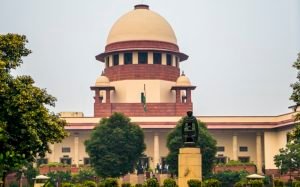The appellants are individuals with benchmark disabilities exceeding 40%. They were engaged in temporary appointments in various public institutions in Kerala through employment exchange under Rule 9(a)(i) of the Kerala State and Subordinate Service Rules, 1958 (KS & SSR). These temporary appointments were for a period not exceeding 179 days.
Government Order (G.O.) – 2013: On 18th May 2013, the State Government of Kerala resolved to regularise the services of 2,677 physically disabled persons who were engaged temporarily. These individuals were to be reappointed against supernumerary posts created solely for their absorption [2, 12, 13a]. The G.O. stipulated that such supernumerary posts would be abolished upon the retirement of the incumbents [2, 13d]. The purpose of this G.O. was to grant “regular appointment” to these employees.
Reappointment and Subsequent G.O. – 2016: Pursuant to the 2013 G.O., the appellants were reappointed on a regular basis. However, a subsequent G.O. dated 3rd February 2016 declared that these reappointed persons would not be eligible for declaration of probation, inclusion in the combined seniority list, or consideration for promotion.
Legal Challenges: The appellants challenged the 2016 G.O.’s restrictions. A Single Judge of the Kerala High Court initially allowed their writ petitions, directing the respondents to grant them the benefits of seniority, declaration of probation, and promotion, finding the 2016 G.O. contrary to principles of equality. However, the Division Bench of the High Court reversed the Single Judge’s judgment, holding that the appointment against a supernumerary post was a policy concession, and thus, benefits of promotion and seniority could not be claimed as a matter of right.
Law Involved :
- Kerala State and Subordinate Service Rules, 1958 (KS & SSR), Rule 9(a)(i): Governs temporary appointments.
- Rights of Persons with Disabilities Act, 2016: The judgment implicitly relies on the principles of non-discrimination and affirmative action for persons with disabilities enshrined in this Act. Specifically, Section 33 of the 1995 Act (predecessor to 2016 Act) and Section 34 of the 2016 Act provide for 3% and 4% reservation respectively for persons with disabilities.
- Constitutional Mandate (Articles 14 and 16): The principles of equality before law and equal opportunity in matters of public employment.
Reasoning :
- Nature of 2013 G.O.: The Supreme Court analysed the 2013 G.O. and determined that its clear intention was to grant regular appointments to persons with disability who had been working temporarily. The G.O. stated that “detailed guidelines regarding the ‘regular appointment’ of the said employees shall be issued later”.
- Discriminatory 2016 G.O.: The Court found that the subsequent G.O. dated 3rd February 2016 was discriminatory and irrational. It effectively sought to withdraw the benefits conferred by the 2013 G.O., which had granted regular appointments, by denying eligibility for probation, seniority, and promotion. The appointments were made on a “regular basis,” and having been appointed on probation, the employees were entitled to be treated on par with others upon successful completion of probation.
- Violation of Rights: The Court concluded that the 2016 G.O. violated Article 14 of the Constitution of India and contradicted the spirit of the 1995 and 2016 Disability Acts. Denying probation, promotion, and other service benefits after granting regular appointment to disabled employees who completed probation and passed departmental tests was deemed contrary to principles of equality and fair treatment. The argument that supernumerary posts were created as a concession and thus did not confer enforceable rights was rejected.
- Status of Employees: The Court stressed that once the temporary employees were granted regular appointments and treated on probation, they became entitled to all the benefits associated with regular service, including seniority, promotion, and other allowances.
Holding:
- The Supreme Court allowed the civil appeals [16iii].
- It set aside the impugned judgments of the Division Bench of the Kerala High Court [15i, 16i].
- The Court restored the judgments of the learned Single Judge of the Kerala High Court and the judgments of the Kerala Administrative Tribunal, which had been set aside by the Division Bench [16ii]. This implies that the benefits of probation, seniority, and promotion are to be granted to the appellants as per the Single Judge’s original directive.
Maya P. C. And Others V. The State Of Kerala And Another
Supreme Court: 2025 INSC 773: (DoJ 23-05-2025)






